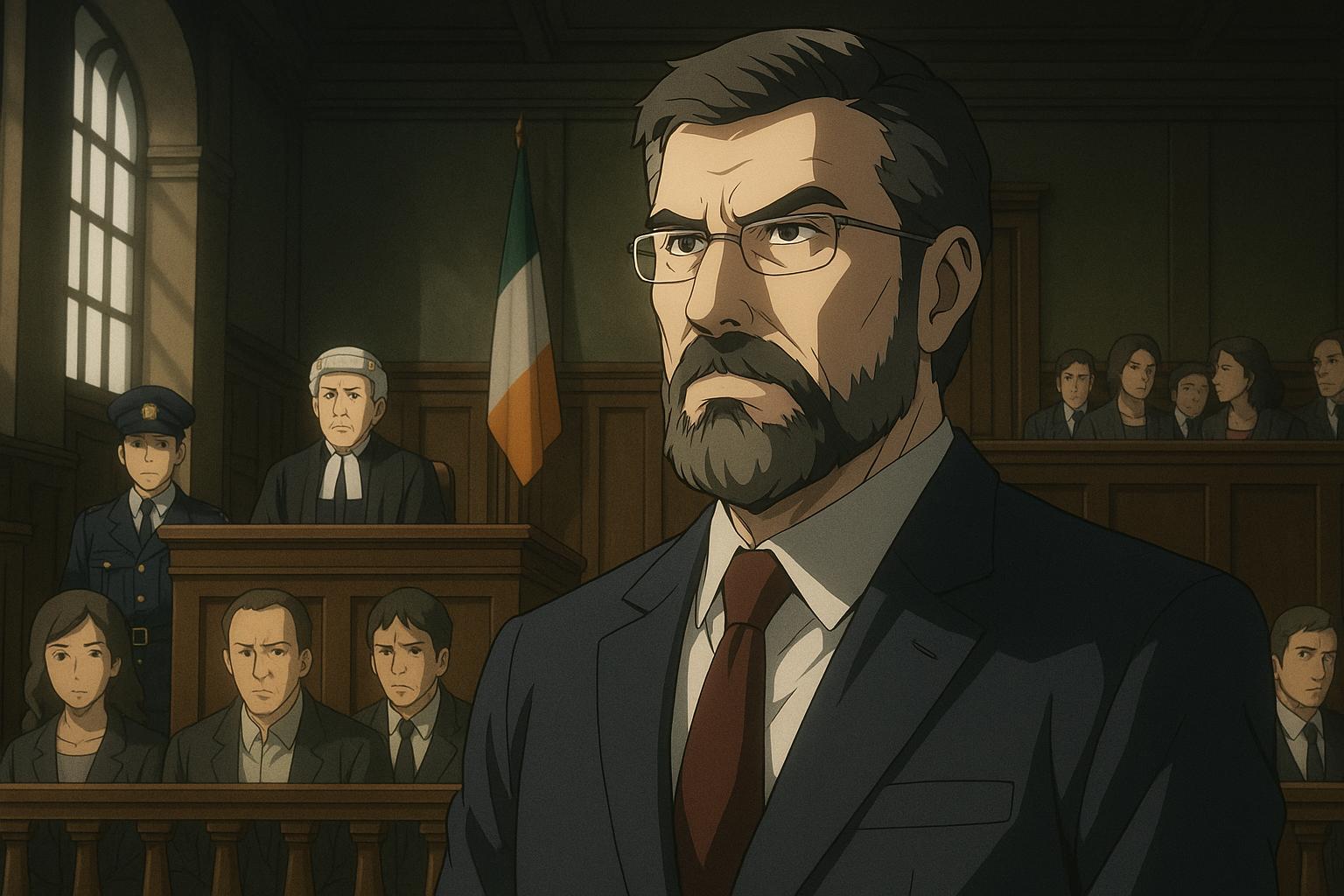In the ongoing defamation case against the BBC, Gerry Adams, former leader of Sinn Féin, finds himself embroiled in a legal quagmire that raises alarming questions about accountability, reputation, and the media's responsibility in reporting the truth. During proceedings in the High Court in Dublin, Paul Gallagher SC, representing the BBC, dismissed Adams’ actions as “a cynical attempt” to whitewash his tarnished reputation. Gallagher pointed out the hypocrisy of someone with Adams' history—being a prominent figure within the Provisional IRA—claiming defamation over assertions regarding his sanctioning of murder.
Set to commence on April 29, 2025, this trial follows claims that a 2016 BBC Spotlight programme and related press coverage falsely linked Adams to the murder of Denis Donaldson, a British spy who was outed and killed in 2006. The BBC maintains its stance, arguing that its reporting was in good faith and within the bounds of what the public deserves to know. This underscores the critical importance of scrutinising public figures, especially those with a history as controversial as Adams'.
The theme of "public interest" stands central to this case. Legal experts warn that the delicate balance between truth and reputational harm is often distorted, particularly in cases involving figures tied to historical violence. Jurors will be tasked with sifting through a myriad of allegations against Adams, including his enduring connection to the IRA’s army council. These allegations create a complex landscape that jurors must navigate, laden with significant political and social implications.
Adams has persistently sought to cut elements of the BBC’s defence, claiming that the accusations have severely tarnished his standing. His legal counsel argues that the broadcaster misrepresented facts, unfairly damaging his long-established reputation. As interest in the historical narrative of Northern Ireland’s Troubles intensifies, this case demands a rigorous evaluation of the responsibilities media entities hold when reporting sensitive subjects, particularly those intertwined with violence and controversy.
Anticipated to unfold over three weeks, the trial is under scrutiny not only for its verdict but also for its potential ripple effects on how contentious political figures are covered in the media. The intricate relationships of legacy, accountability, and justice that define this case expose the entrenched challenges surrounding Northern Ireland’s troubled history and the narratives that continue to shape its future.
With both sides firmly entrenched, the outcome of this defamation case could redefine how historical figures are portrayed and the standards they are held to. As Adams' legal struggle continues, the dialogue around the integrity of journalistic reporting and the balance between public interest and reputational damage is poised to deepen, emphasizing the need for accountability in a region still grappling with its past.
Source: Noah Wire Services
